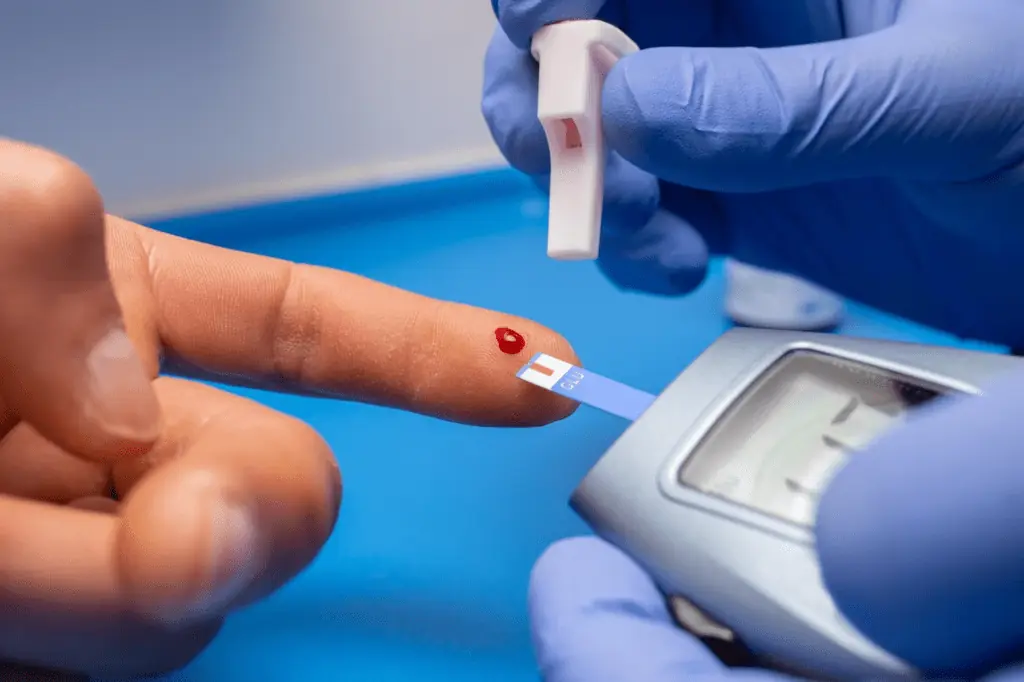
Information on diabetes may be found practically everywhere. It’s not easy to go through everything and figure out what’s relevant to you and what isn’t. So, we’ve compiled a list of the most frequently asked questions about diabetes.
What Are The Types Of Diabetes?
Type 1 Diabetes
Type 1 diabetes makes up about 5% of all diagnosed diabetic cases. It is an autoimmune disease that can be diagnosed at any age but is most often diagnosed in children and young adults. The body attacks and destroys its own insulin-producing cells. This means that the body cannot produce enough insulin to regulate glucose levels.
Type 2 Diabetes
Type 2 diabetes is a lifestyle-related disease that usually occurs in adults over 40. But it can also affect younger people who are overweight or have a family history of the disease. With type 2 diabetes, the body becomes resistant to insulin and cannot use it properly.
Gestational Diabetes
Gestational diabetes occurs during pregnancy and usually goes away after the baby is born. However, it can lead to serious complications for both mother and child if not treated properly. Gestational diabetes also increases the risk of developing type 2 diabetes later in life.
What Are The Symptoms Of Diabetes?
The symptoms of diabetes can vary from person to person. These include:
- Increased thirst and hunger
- Frequent urination
- Weight loss or weight gain
- Fatigue
- Blurred vision
- Slow healing of wounds
However, these symptoms are not always present in those who have diabetes. The only reliable approach to diagnosing diabetes is to get a blood test from your primary care physician.
Who Are At Risk Of Diabetes?
The following groups of people are at a higher risk of developing diabetes:
- Those who are overweight or obese
- Those with a family history of diabetes
- People with high blood pressure or cholesterol levels, especially those in their 40s and 50s
- People who have a history of gestational diabetes or polycystic ovary syndrome
- People who are physically inactive
Can I Prevent Diabetes?
Research shows that diabetes can be prevented in many, if not most cases. The key is to focus on three main factors: lifestyle changes, healthy eating habits, and physical fitness. If you have a family history of diabetes, you should be more vigilant about your health. It’s important to maintain a healthy weight and get regular physical activity. If you’re overweight, losing just 5% of that weight can reduce the risk of type 2 diabetes by 58%.
How Is Diabetes Diagnosed?
Diabetes is diagnosed based on a series of tests that measure your blood glucose level.
Urine examination
A urine test may reveal elevated blood sugar levels. However, a urine test by itself can’t confirm diabetes. You may need to take a blood test to confirm the diagnosis.
Blood glucose test
A blood glucose test is the most common way of diagnosing diabetes. It involves drawing a sample of blood from your vein and measuring its glucose content.
Do I Have to Start Taking Insulin If I’m Diagnosed with Diabetes?
No. Insulin shots may not be required for people with type 2 diabetes, depending on a number of factors. According to research, if type 2 diabetes is diagnosed early and blood sugar levels are regulated immediately, the pancreas may be able to produce adequate insulin for a longer time.
However, a person who has lived with type 2 diabetes for more than 15 years may not be able to produce enough insulin anymore. Hence, they will have to take it by injection or pump.

Can I Reverse My Diabetes?
No, diabetes is not reversible, but you have control over it. If you have recently been diagnosed with type 2 diabetes or you’re prediabetic, reducing a significant weight may put your disease into remission. However, it may reemerge due to gaining weight, aging, and normal progression of the disease.
What Can I Eat If I Have Diabetes?
You can eat pretty much everything you want. It is all about understanding portion control and what you serve on your plate. However, you will have to pay more attention to the number of carbohydrates you consume. The carbs you eat need to be burned with exercise to prevent blood sugar levels from spiking.
Is Weight Loss Important If I Have Diabetes?
Weight loss is an important part of managing diabetes. Not only will it help you feel better and look better, but it can help control blood sugars and prevent complications of diabetes.
Being overweight can increase your risk of developing complications such as heart disease, stroke, high blood pressure, and kidney disease. Moreover, losing weight improves insulin sensitivity, helping cells to utilize insulin more efficiently.
Can Insulin Cure Diabetes?
No. Insulin isn’t a cure for diabetes, but it can help manage the disease. Insulin is a hormone that controls the level of sugar in your blood by helping your body convert food into energy. It allows the cells in your muscles and liver to take up glucose from the bloodstream. The goal of insulin therapy is to help stabilize the imbalance and minimize the effects of uncontrolled diabetes.
What Are The Complications Of Diabetes?
The complications of diabetes can be serious and even deadly. They include heart disease, stroke, vision loss, and kidney disease. Diabetes also increases the risk of certain cancers, including pancreatic cancer. The good news is that there are things you can do to prevent or delay diabetes complications.
How Can I Prevent The Complications Of Diabetes?
Dealing with diabetes requires a lot of work. But it’s important to remember that even if you have the condition, there are steps you can take to prevent its complications. For example, you can control your blood sugar levels by following a healthy diet and regular exercise. You also should monitor your blood pressure and cholesterol. The key is to take charge of your diabetes by making lifestyle changes that can improve your health.
Managing Your Diabetes Better
Diabetes can be tough. When you first find out you have diabetes, it’s okay to feel overwhelmed. You’ll be bombarded with information from other people. But every person with diabetes has different needs and expectations for managing the condition.
The best way to manage your diabetes is by actively participating in your health care. You can do this by learning about the condition and following a treatment plan that’s right for you. The more you know about diabetes and its effects on your body, the better equipped you’ll be to make healthy lifestyle choices.
Don’t let diabetes get you down. Get in the game and be a game-changer for your health. We can help!